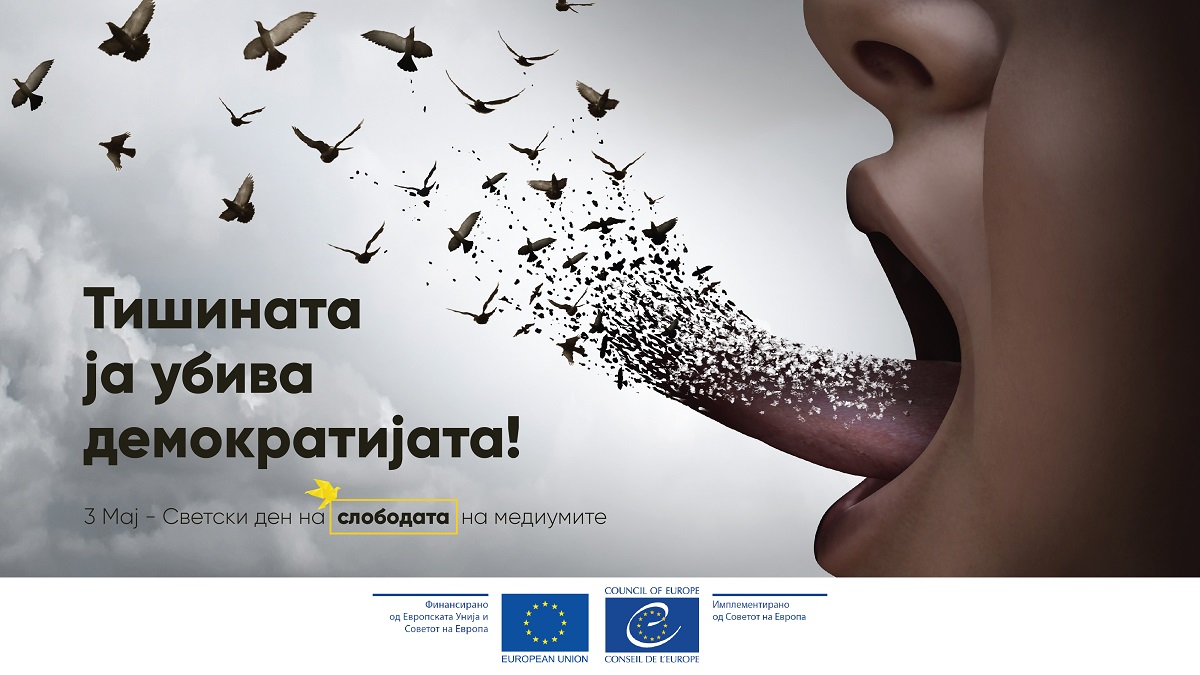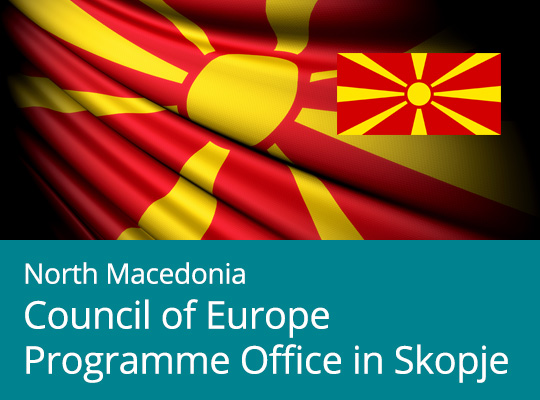A free, diverse and responsible press is a core element of any functioning democracy. 3 May, the World Press Freedom Day acts as a reminder to governments of the need to respect their commitment to freedom of the press and the media - “Freedom of expression, media independence and open deliberation, rather than information control, are the core principles underlying European democracy which will allow us to surmount the great challenges facing our countries.”
It is a day of reflection among journalists and other media actors about their challenges to guarantee press freedom but also to ensure professional and ethical journalism. Equally important, World Press Freedom Day is a day to show our support for those media which are targets of the restraint, or elimination, in their struggle to achieve press freedom. It is also a day of tribute for those journalists who suffered threats, attacks and for the ones who lost their lives in the pursuit of a story. This is a reminder that silence actually kills the democracy.
This year on 3 May, the World Press Freedom Day, the joint action of the European Union and the Council of Europe “Freedom of expression and freedom of the media in North Macedonia (JUFREX 2)” is launching the awareness raising campaign “Silence kills the democracy!” to raise awareness on this important day and to reassure the public authorities in taking actions for enabling environment for press freedom.
The challenges of the media environment have assumed new dimensions with the COVID-19 outbreak. And considering the fact that the world is living in a ‘pandemic time’ for more than a year now, it is of outmost importance that we seek measures to effectively respond to the crises but not to undermine Europe’s founding values of democracy, rule of law and human rights. To that end, the Council of Europe’s Committee of experts on media environment and reform (MSI-REF) has issued a Statement on freedom of expression and information in times of crisis underlining the role of reliable journalism and independent media, as well as unrestricted access to information, in providing accurate and reliable news and information, and countering rumours and disinformation. In this context, the Commissioner for Human Rights Dunja Mijatović has also emphasised that “Press freedom must not be undermined by measures to counter disinformation about COVID-19” and measures to combat disinformation must never prevent journalists and media actors from carrying out their work or lead to content being unduly blocked on the Internet. In the efforts to address such challenges, a dedicated web-page on Media in times of a health crises was created providing relevant Council of Europe guidelines and information on how to advance freedom of expression in times of crisis.
Yet, even besides all efforts to ensure enabling environment for free press, journalists remain the main target because of their work. Instead of acting as actual ‘watchdogs’ of democracy, being scared for their physical and mental health, journalists are most affected by the so-called ‘chilling effect’. This ‘chilling effect’ is a result of the long tradition of impunity for crimes committed against journalists. Thus, in April 2016, the Committee of Ministers of the Council of Europe adopted the Recommendation CM/Rec(2016)4 on the protection of journalism and safety of journalists and other media actors encouraging Member States to enhance the protection of journalists by working around four ‘P-s’: Prevention, Protection, Prosecution (including a specific focus on impunity) as well as Promotion of information, education and awareness raising. Moreover, this Recommendation emphasizes the need for a timely prosecution of perpetrators of crimes against journalists in order to combat impunity and prevent crimes against journalists from having a ‘chilling effect’ on freedom of expression.
The Council of Europe has also published an Implementation Guide of Recommendation CM/Rec(2016)4. The Guide provides member states with actual directions on how to protect journalists and other media actors and end impunity. In particular, the Guide is intended to support member States in drafting national action plans on the safety of journalists, ensuring that these action plans have urgency-based priorities and are supplemented by adequate resources for their implementation.
JUFREX 2 is part of the joint European Union and Council of Europe programme “Horizontal Facility for the Western Balkans and Turkey II”, that enables the Beneficiaries to meet their reform agendas in the fields of human rights, rule of law and democracy and to comply with the European standards, including where relevant within the framework of the EU enlargement process.




